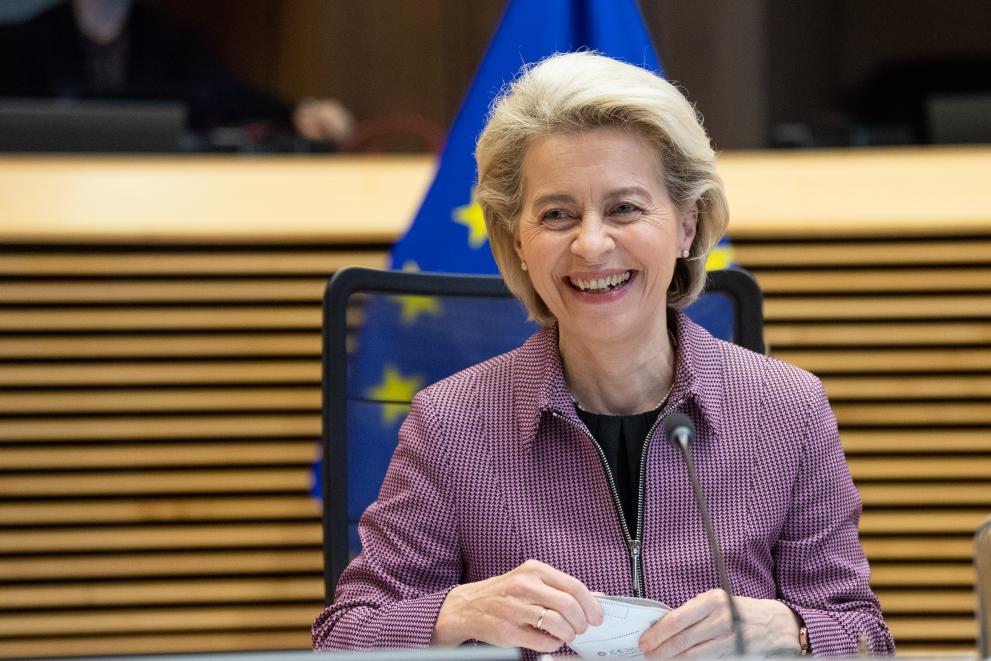
The European Commission adopted two financing decisions, amounting to €560 million, to support inclusive quality education for refugees in Turkey and access to higher education as well as for migration and border protection as part of an additional €3 billion announced by President von der Leyen in June 2021 to continue EU assistance to refugees in Turkey for the period of 2021-2023.
On the occasion of the adoption of the two measures, Commissioner for Neighbourhood and Enlargement Olivér Várhelyi stated: “This new funding for refugees and host communities in Turkey shows that the European Union continues to deliver on its commitments. It will ensure that hundreds of thousands of refugee children can continue going to school and receiving quality education, which is key to secure future job perspectives and in view of the overall socio-economic recovery. We will also provide financing to the authorities to address migratory challenges and increase border protection, not least in view of the evolving situation at the Eastern border of Turkey.”
Measure to support quality inclusive education for refugees in Turkey:
The first measure, worth €530 million, will support quality inclusive education of refugees in Turkey and access to higher education, notably through scholarships:
- The project on Promoting Integration of Syrian Kids into Turkish Education System (PIKTES), which started in 2016 and provides essential support to the integration of refugee children into the Turkish education system. The project provides for teacher salaries, transportation costs, education equipment and supplies, provides catch-up and back-up classes to students, Turkish language trainings, teachers' trainings, school guidance and counselling programme, early childhood education while promoting social cohesion in a fully integrated way. To date, there have been two PIKTES projects. The third phase would start in October 2022.
- The Conditional Cash Transfer for Education (CCTE) project, which started in 2016 under the humanitarian envelope of the Facility. The fourth generation of this critical support will ensure the continuity of the provision of incentives for the schooling of some 695.000 refugee children through cash transfers, and will focus on outreach as well.
- The third component (BEUrs) supports refugees' access to higher education including via scholarships and related support services, to ensure that they have the necessary skills to secure better employment opportunities.
Measures to support migration and border management in Turkey:
- The second financing decision will provide for €30 million in support to help tackle migration and border challenges: capacity building and improving the standards and conditions for migrants in Turkey's hosting centres, as well as improvements in addressing migration related issues at Turkish airports. In particular support will cover the following interventions:
- The continuation of EU direct support to the Presidency for Migration Management (PMM), as foreseen in the EU-Turkey 2016 Statement. This intervention aims to improve the management of reception and hosting centres in line with human rights standards and gender–sensitive approaches. It ensures the safe and dignified transfer of irregular migrants, access to quality services, and hosting and accommodation in appropriate conditions.
- The support to PMM's efforts via the effective implementation of Turkey's Strategy Document and National Action Plan on Irregular Migration (2021-2025). The action plan should strengthen cooperation with countries of origin and destination. It will also address the promotion of regular migration, an important contribution to efforts to prevent irregular migration.
- A joint intervention with the International Organisation for Migration (IOM) to improve inter-agency cooperation and increase, in a sustainable manner, the capacity of migration and border management agencies operating at airports.
Background
Turkey has been hosting around 4 million refugees, the largest refugee community in the world. This includes 3.6 million registered Syrian refugees and 370,000 registered refugees from other countries. Turkey continues to make commendable efforts to receive, support and host refugees and migrants.
The European Council of 24-25 June 2021 asked for the continuation of EU support to refugees and host communities in Turkey for 2021-2023, given that resources under the Facility for Refugees in Turkey have been fully committed. In June, the European Commission proposed a total package of €5.7 billion for refugee support in the region, of which €3 billion is to be allocated in Turkey.
The Facility for Refugees, a key component of the 2016 EU-Turkey Statement, marked a significant scale-up of EU support to refugees in Turkey. In addition to the €3 billion of EU budget, the Facility benefits from €3 billion of EU Member States contributions. All €6 billion has been fully contracted and over €4.35 billion disbursed The balance will be disbursed as projects progress on the ground and completed during the period of 2022-24, with final disbursements planned for 2025. In 2020, the EU allocated over €535 million in bridge humanitarian funding to refugees in Turkey.
A previous €325 million in humanitarian assistance as part of the additional €3 billion package to support refugees in Turkey announced by President von der Leyen following the European Council of 25 June 2021 was already announced in December. This assistance will allow to extend until early 2023 the Emergency Social Safety Net (ESSN) programme, that provides more than 1.5 million refugees in Turkey with monthly cash transfers to cover their essential needs.
For More Information
Measure to support quality inclusive education for refugees in Turkey
Measure to support migration and border management in Turkey
EU Facility for Refugees in Turkey
Factsheet on the EU Facility for Refugees in Turkey
Fifth Annual Report on the Facility for Refugees in Turkey
Overview of projects under the EU Facility for Refugees in Turkey
Details
- Publication date
- 21 December 2021
- Author
- Representation in Cyprus
